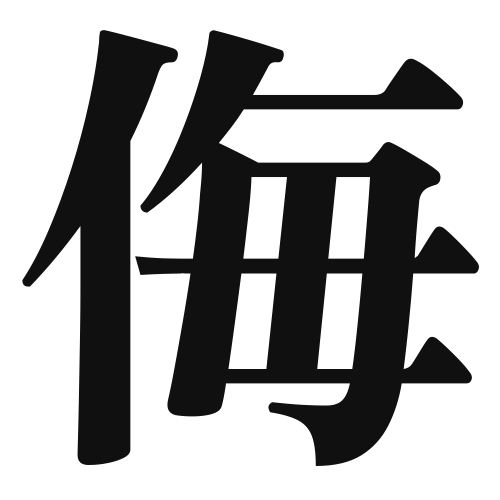1. Overview of Meaning
The kanji “侮” (bu) means “to despise” or “to insult.” It conveys a sense of disrespect or contempt towards someone or something.
2. Formation and Radical
Formation of the Kanji: The kanji “侮” is a compound character (会意文字) that combines elements to convey its meaning. It consists of the radical “亻” (which represents a person) and the character “侮” itself, which relates to the act of belittling or insulting.
Radical: The radical of “侮” is “亻” (the person radical), indicating that the action involves a person or is directed towards a person.
3. Examples of Usage
Common Words and Phrases: Some common words that include “侮” are “侮辱” (buraku – insult) and “侮蔑” (bubetsu – disdain).
Example Sentences in Daily Conversation:
- 彼は私を侮辱した。 (Kare wa watashi o buraku shita.) – He insulted me.
- 侮ることは許されない。 (Anata o anadoru koto wa yurusarenai.) – Despising others is unacceptable.
4. Synonyms and Antonyms
Similar Kanji: A similar kanji is “軽蔑” (keibetsu), which also means “contempt” but carries a slightly different nuance, often implying a more profound disdain.
Opposite Kanji: The opposite of “侮” is “尊” (son), which means “to respect” or “to honor.” This highlights the contrast between disrespect and respect.
5. Cultural and Historical Background
Relation to Japanese Culture: In Japanese culture, showing respect is highly valued, and “侮” represents a negative behavior that is often condemned in social interactions.
Proverbs and Idioms: An example of a related proverb is “侮る者は侮られる” (Anadoru mono wa anadorareru), which translates to “Those who despise will be despised,” emphasizing the importance of treating others with respect.
